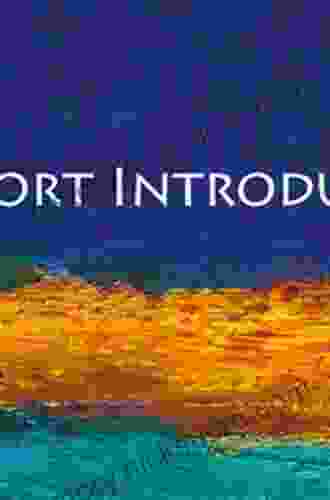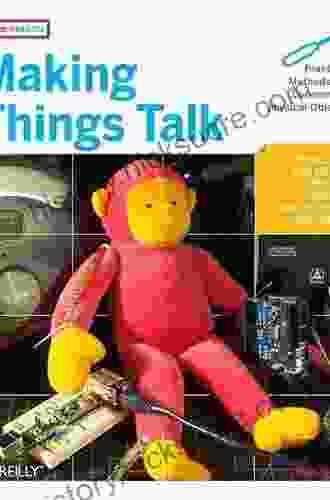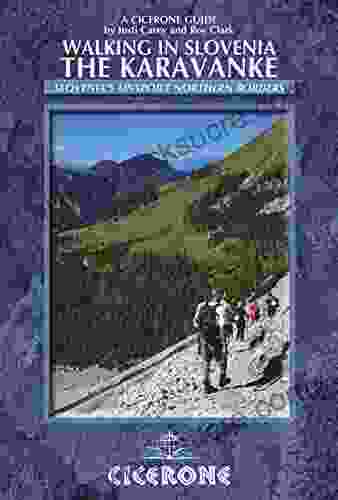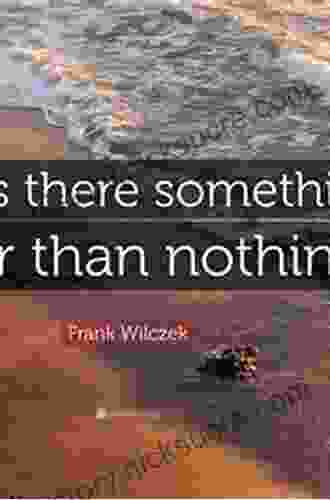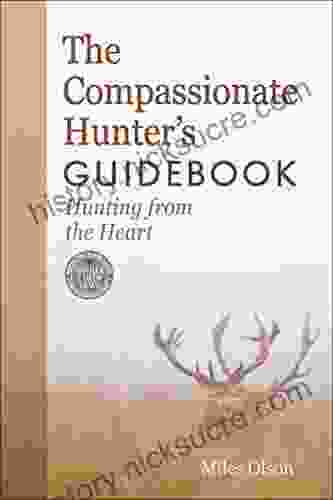Archaeology: A Very Short Introduction - A Comprehensive Guide to the Past

Archaeology is the study of past human societies through their material remains. It is a multidisciplinary field that draws on a variety of methods, including excavation, survey, and analysis, to uncover the secrets of the past. Archaeological discoveries have revolutionized our understanding of human history, providing us with insights into the lives of our ancestors and the civilizations they built.
4.5 out of 5
| Language | : | English |
| File size | : | 1607 KB |
| Text-to-Speech | : | Enabled |
| Enhanced typesetting | : | Enabled |
| Word Wise | : | Enabled |
| Print length | : | 137 pages |
| Lending | : | Enabled |
| Screen Reader | : | Supported |
In this Very Short , Paul Bahn provides a comprehensive overview of the field of archaeology, from its origins in the 18th century to its modern methods and discoveries. He explores the different types of archaeological evidence, including artifacts, architecture, and ecofacts, and discusses the various ways that archaeologists interpret this evidence to reconstruct the past. He also examines the ethical implications of archaeological research and the role that archaeology can play in promoting understanding and reconciliation between different cultures.
Archaeology: A Very Short is an essential guide for anyone interested in learning more about the past. It is a fascinating and informative read that will appeal to students, scholars, and general readers alike.
Methods of Archaeological Research
Archaeologists use a variety of methods to uncover the secrets of the past. These methods include:
- Excavation: The most common method of archaeological research is excavation, which involves digging into the ground to expose buried remains. Excavations can be small-scale, such as a single pit or trench, or large-scale, such as the excavation of an entire town or city.
- Survey: Another important method of archaeological research is survey, which involves searching for and recording archaeological sites. Surveys can be conducted on foot, by air, or by using remote sensing techniques. Surveys can help archaeologists identify new sites, as well as learn more about the distribution and density of sites in a particular area.
- Analysis: Once archaeological remains have been excavated or surveyed, they must be analyzed to extract information about the past. Analysis can involve a variety of techniques, such as studying the artifacts, architecture, and ecofacts; examining the soil and sediment; and conducting laboratory tests. Analysis can help archaeologists learn about the age, function, and significance of archaeological remains.
Theories of Archaeological Interpretation
Archaeologists use a variety of theories to interpret the material remains of the past. These theories include:
- Culture history: This theory views the past as a series of distinct cultures, each with its own unique characteristics. Culture history archaeologists focus on identifying and describing these cultures, and on understanding their origins, development, and decline.
- Processual archaeology: This theory views the past as a series of processes, such as economic, social, and political change. Processual archaeologists focus on identifying and understanding these processes, and on how they shaped the development of human societies.
- Post-processual archaeology: This theory views the past as a series of experiences, and it emphasizes the importance of understanding the perspectives of the people who lived in the past. Post-processual archaeologists focus on studying the material remains of the past in order to learn about the lives of the people who created them.
Discoveries of Archaeological Research
Archaeological discoveries have revolutionized our understanding of human history. Some of the most important discoveries include:
- The discovery of human evolution: Archaeological discoveries have played a crucial role in our understanding of human evolution. The discovery of fossils, such as Lucy, the Australopithecus afarensis, has helped us to trace the origins of our species. Archaeological discoveries have also helped us to learn about the development of human culture, from the first stone tools to the rise of civilization.
- The discovery of ancient civilizations: Archaeological discoveries have also helped us to learn about the development of ancient civilizations. The discovery of the Sumerian city of Ur, for example, has provided us with insights into the rise of writing, mathematics, and astronomy. Archaeological discoveries have also helped us to learn about the development of other ancient civilizations, such as the Egyptian, Greek, and Roman civilizations.
- The discovery of the New World: Archaeological discoveries have also played a role in the discovery of the New World. The discovery of the Viking settlements in North America, for example, has helped us to learn about the pre-Columbian history of the Americas. Archaeological discoveries have also helped us to learn about the development of the Native American cultures.
The Ethical Implications of Archaeological Research
Archaeological research has the potential to impact the lives of people around the world. It is important for archaeologists to be aware of the ethical implications of their research and to conduct their work in a responsible manner. Some of the ethical issues that archaeologists must consider include:
- The preservation of archaeological sites: Archaeological sites are a finite resource, and it is important to preserve them for future generations. Archaeologists must take steps to minimize the impact of their research on archaeological sites, and they must work with local communities to protect these sites.
- The repatriation of cultural artifacts: Many archaeological artifacts have been removed from their original context and are now housed in museums and collections around the world. There is a growing movement to repatriate these artifacts to their countries of origin. Archaeologists must work with indigenous communities to determine the appropriate disposition of these artifacts.
- The use of archaeological research for political purposes: Archaeological research can be used to support political agendas, and it is important for archaeologists to be aware of this potential. Archaeologists must conduct their research in an objective and unbiased manner, and they must avoid using their research to support particular political views.
The Role of Archaeology in Promoting Understanding and Reconciliation
Archaeology can play a role in promoting understanding and reconciliation between different cultures. By studying the past, we can learn about the different ways that people have lived and interacted with each other. This knowledge can help us to break down stereotypes and prejudices, and to build bridges between different cultures.
Archaeology can also be used to help resolve conflicts and promote reconciliation. For example, archaeological research has been used to help resolve land disputes between indigenous communities and governments. Archaeological research has also been used to help identify and recover the remains of victims of war and violence. This work can help to bring closure to families and communities, and to promote healing and reconciliation.
Archaeology is a fascinating and important field of study that has the potential to teach us a great deal about the past. Archaeological discoveries have revolutionized our understanding of human evolution, the development of ancient civilizations, and the history of the New World. Archaeology can also play a role in promoting understanding and reconciliation between different cultures.
If you are interested in learning more about archaeology, I encourage you to read this Very Short . It is a comprehensive and engaging guide to the field that will appeal to students, scholars, and general readers alike.
4.5 out of 5
| Language | : | English |
| File size | : | 1607 KB |
| Text-to-Speech | : | Enabled |
| Enhanced typesetting | : | Enabled |
| Word Wise | : | Enabled |
| Print length | : | 137 pages |
| Lending | : | Enabled |
| Screen Reader | : | Supported |
Do you want to contribute by writing guest posts on this blog?
Please contact us and send us a resume of previous articles that you have written.
 Fiction
Fiction Non Fiction
Non Fiction Romance
Romance Mystery
Mystery Thriller
Thriller SciFi
SciFi Fantasy
Fantasy Horror
Horror Biography
Biography Selfhelp
Selfhelp Business
Business History
History Classics
Classics Poetry
Poetry Childrens
Childrens Young Adult
Young Adult Educational
Educational Cooking
Cooking Travel
Travel Lifestyle
Lifestyle Spirituality
Spirituality Health
Health Fitness
Fitness Technology
Technology Science
Science Arts
Arts Crafts
Crafts DIY
DIY Gardening
Gardening Petcare
Petcare Joy Nash
Joy Nash Amy R Carpenter
Amy R Carpenter Prince Daniels Jr
Prince Daniels Jr Shari Stauch
Shari Stauch Db King
Db King Kevin Salwen
Kevin Salwen Hamish Haswell Smith
Hamish Haswell Smith Anu Partanen
Anu Partanen Ehren Myers
Ehren Myers Claudia Sanborn
Claudia Sanborn Tashie Bhuiyan
Tashie Bhuiyan Paul Lockhart
Paul Lockhart Henrik Gert Larsen
Henrik Gert Larsen Virginia M Axline
Virginia M Axline Michael J Hathaway
Michael J Hathaway Shane Parrish
Shane Parrish Mark Woods
Mark Woods Dan Blanchard
Dan Blanchard Ariella Moon
Ariella Moon Peter Nabokov
Peter Nabokov Chuck Carlson
Chuck Carlson David J Anderson
David J Anderson Iain Mcgilchrist
Iain Mcgilchrist Sean Poage
Sean Poage Mike Liner
Mike Liner Caroline Gallup
Caroline Gallup Julitta Korol
Julitta Korol Mike Malaska
Mike Malaska Carrie Shuchart
Carrie Shuchart Christopher Van Tilburg
Christopher Van Tilburg June Goulding
June Goulding Phil Genova
Phil Genova Jennifer Scribner
Jennifer Scribner Shavona L Floyd
Shavona L Floyd Lawrence J Cohen Phd
Lawrence J Cohen Phd Marge Foley
Marge Foley Anthony Idalion
Anthony Idalion Victoria Duerstock
Victoria Duerstock Michael Pearle
Michael Pearle Stella Cottrell
Stella Cottrell Jeff Galloway
Jeff Galloway Thomas H Davenport
Thomas H Davenport Todd Michael St Pierre
Todd Michael St Pierre Chandelle Lavaun
Chandelle Lavaun Colleen Doyle Bryant
Colleen Doyle Bryant Jacqueline Melvin
Jacqueline Melvin Chelsea Hanson
Chelsea Hanson Matthew M Hurley
Matthew M Hurley Joe Oswald
Joe Oswald Michelle Quach
Michelle Quach David Warriner
David Warriner John Derbyshire
John Derbyshire Abby Knox
Abby Knox Helen Leigh
Helen Leigh Mark Harper
Mark Harper Steve Sheward
Steve Sheward Erin Gruwell
Erin Gruwell Daniel Bezman
Daniel Bezman Michael Morgan
Michael Morgan Denny Emerson
Denny Emerson Corey Wade
Corey Wade Inc Barcharts
Inc Barcharts Robert Solomon
Robert Solomon Kindle Edition
Kindle Edition John N Maclean
John N Maclean Paula Hendricks
Paula Hendricks Joe Kelsey
Joe Kelsey Ken Setterington
Ken Setterington Leon Edward
Leon Edward Aquila Chrysaetos
Aquila Chrysaetos Tamim Ansary
Tamim Ansary Regan Parker
Regan Parker Steve Raible
Steve Raible Jane R Hirschmann
Jane R Hirschmann Leigh Cowart
Leigh Cowart Diana Raab
Diana Raab Art Smith
Art Smith Herbert L Gravitz
Herbert L Gravitz Shannon O Gorman
Shannon O Gorman Marcia Nathai Balkissoon
Marcia Nathai Balkissoon Bernard Darwin
Bernard Darwin Charles C Patrick
Charles C Patrick Stephen Robson
Stephen Robson Sarah Guthals
Sarah Guthals John Vonhof
John Vonhof Christina Thompson
Christina Thompson Harry Vardon
Harry Vardon Theodore Kendris
Theodore Kendris Peter Ballin
Peter Ballin Mila Markle
Mila Markle Jef Aldrich
Jef Aldrich Mira Ptacin
Mira Ptacin Ken Adcock
Ken Adcock Ta Nehisi Coates
Ta Nehisi Coates Marie Tillman
Marie Tillman Jessica Joelle Alexander
Jessica Joelle Alexander Eric Coll
Eric Coll Harald E L Prins
Harald E L Prins Gia Scott
Gia Scott David Robinson
David Robinson Sherry Thomas
Sherry Thomas James Ori
James Ori You Fuguruma
You Fuguruma Peggy Mohan
Peggy Mohan Ton Viet Ta
Ton Viet Ta Emma Frisch
Emma Frisch Craig Caudill
Craig Caudill Bart Yasso
Bart Yasso Michael Wisehart
Michael Wisehart Zigzag English
Zigzag English Second Edition Revised Kindle Edition
Second Edition Revised Kindle Edition Brett Friedman
Brett Friedman Mamma Margaret
Mamma Margaret David Klausmeyer
David Klausmeyer William Murakami Brundage
William Murakami Brundage Pharmacology University
Pharmacology University Roger Guay
Roger Guay Stephen E Dew
Stephen E Dew Revised Edition Kindle Edition
Revised Edition Kindle Edition Michelle Oberman
Michelle Oberman Winifred Conkling
Winifred Conkling Ron Kittle
Ron Kittle Carolyn Henry
Carolyn Henry Sasha Issenberg
Sasha Issenberg Jackson Carter
Jackson Carter Donald B Deyoung
Donald B Deyoung Giovanni Amato
Giovanni Amato Supersummary
Supersummary Susan B Bastable
Susan B Bastable Antoine Savine
Antoine Savine Karen Ehman
Karen Ehman Geraldine Brooks
Geraldine Brooks Conn Iggulden
Conn Iggulden Tim Macwelch
Tim Macwelch Greg Cruthers
Greg Cruthers Deirdre Dolan
Deirdre Dolan Linda Hibbs
Linda Hibbs Rael Isacowitz
Rael Isacowitz Jean Anthelme Brillat Savarin
Jean Anthelme Brillat Savarin Erving Goffman
Erving Goffman Keiko Tobe
Keiko Tobe April Lara
April Lara Dan Michaelson
Dan Michaelson Go Books
Go Books Jenny Hall
Jenny Hall Shanaya Summer
Shanaya Summer Elisabeth Sheff
Elisabeth Sheff Jen L Grey
Jen L Grey Jennifer Karnopp
Jennifer Karnopp Randy Gerke
Randy Gerke Rebecca Schiller
Rebecca Schiller Mark Kurlansky
Mark Kurlansky Kathleen Hale
Kathleen Hale Ennki Hakari
Ennki Hakari Ian Condry
Ian Condry Tharik Hussain
Tharik Hussain Jayne Storey
Jayne Storey Dan Jones
Dan Jones Reynaldo S Galang
Reynaldo S Galang Robert Wright
Robert Wright Sharon Begley
Sharon Begley Arrl Inc
Arrl Inc Torre Deroche
Torre Deroche Heather Turgeon
Heather Turgeon J Robert King
J Robert King Ji Kim
Ji Kim Kay Elder
Kay Elder Marie Lu
Marie Lu Laura Stamm
Laura Stamm Erik Molvar
Erik Molvar Daniel R Montello
Daniel R Montello Eli Lizorkin Eyzenberg
Eli Lizorkin Eyzenberg Antony Felix
Antony Felix Antonia Bolingbroke Kent
Antonia Bolingbroke Kent Headquarters Department Army
Headquarters Department Army Felicity Pulman
Felicity Pulman Susan Campbell Bartoletti
Susan Campbell Bartoletti Barbara Pachter
Barbara Pachter Kate Barrows
Kate Barrows Sally Huss
Sally Huss Jason Hanson
Jason Hanson Tara Grayce
Tara Grayce Tasha Powers
Tasha Powers Anya Hayes
Anya Hayes Chris Carmichael
Chris Carmichael Lenyfer Garrido
Lenyfer Garrido Sonia Weyers
Sonia Weyers Estelle Frankel
Estelle Frankel Budd Bailey
Budd Bailey Karema Mcghee
Karema Mcghee Sara Wheeler
Sara Wheeler Thema Bryant Davis
Thema Bryant Davis Alessandra Belloni
Alessandra Belloni Peter Newby
Peter Newby Douglas Riley
Douglas Riley Derek Dellinger
Derek Dellinger Grayson Sinclair
Grayson Sinclair Kristen Radtke
Kristen Radtke Carl Sagan
Carl Sagan James L Swanson
James L Swanson Sarah H Parcak
Sarah H Parcak Rick Riordan
Rick Riordan Nigel Foster
Nigel Foster Joy Jones
Joy Jones Walter H Gmelch
Walter H Gmelch Corrine Morgan Thomas
Corrine Morgan Thomas Jonathan Robinson
Jonathan Robinson Kelly Jensen
Kelly Jensen Michael Mccree
Michael Mccree Henry Bennett
Henry Bennett Jody Houser
Jody Houser Marc Sedaka
Marc Sedaka Richard Griffith
Richard Griffith Donald Frias
Donald Frias Gary Paulsen
Gary Paulsen Paige Rawl
Paige Rawl Hendrik Ebbers
Hendrik Ebbers Mr Michael Quilty Maguire
Mr Michael Quilty Maguire H W Brands
H W Brands Lara Kolawole
Lara Kolawole Joseph F Healey
Joseph F Healey Lou Paget
Lou Paget Chris Duff
Chris Duff Antony Cummins
Antony Cummins Ronald Mangravite
Ronald Mangravite Ogi Ogas
Ogi Ogas Marty Smith
Marty Smith Barbara Brown Taylor
Barbara Brown Taylor Dr Mark Sircus
Dr Mark Sircus Dawn Hogue
Dawn Hogue Maia Szalavitz
Maia Szalavitz George Kimball
George Kimball Panos Y Papalambros
Panos Y Papalambros Harvey Penick
Harvey Penick Gregg Braden
Gregg Braden Peter Aitchison
Peter Aitchison Jenny B Jones
Jenny B Jones Benoit Mandelbrot
Benoit Mandelbrot Paul Ortiz
Paul Ortiz Dr Lucie Rivera
Dr Lucie Rivera Richard Sale
Richard Sale George Sandford
George Sandford George J Sanchez
George J Sanchez Laurie Halse Anderson
Laurie Halse Anderson Justi Carey
Justi Carey Mark Stavish
Mark Stavish Michael Tyler
Michael Tyler R Scott Jones
R Scott Jones Justin Goldman
Justin Goldman Laura Taylor Namey
Laura Taylor Namey Tim Collins
Tim Collins Aref Jeribi
Aref Jeribi Simon Pridmore
Simon Pridmore James Atkinson
James Atkinson Jason Brick
Jason Brick Cynthia Chen Mcternan
Cynthia Chen Mcternan Don Kirk
Don Kirk Dm Fitzgerald
Dm Fitzgerald George Orwell
George Orwell The Pinnacle Review
The Pinnacle Review Tina Nicastro Maom Lac
Tina Nicastro Maom Lac Nancy Clark
Nancy Clark Sahara Foley
Sahara Foley Bradford Angier
Bradford Angier Creek Stewart
Creek Stewart Clara E Hill
Clara E Hill Jerzy Jezierski
Jerzy Jezierski Ian Freeman
Ian Freeman Robert J Sweet
Robert J Sweet Liz Wiseman
Liz Wiseman Julyen Rose
Julyen Rose Mark Fisher
Mark Fisher Stephen Joseph
Stephen Joseph Nystce Exam Secrets Test Prep Team
Nystce Exam Secrets Test Prep Team Laurence Gardner
Laurence Gardner Richard Fortey
Richard Fortey Austyn Lee
Austyn Lee Jerry R Thomas
Jerry R Thomas Jonathan Benson
Jonathan Benson Katharine A Phillips
Katharine A Phillips Zac Williams
Zac Williams 2nd Edition Kindle Edition
2nd Edition Kindle Edition Eliana De Las Casas
Eliana De Las Casas Territory Supply
Territory Supply Cara Natterson
Cara Natterson My Daily Russian
My Daily Russian Alan Bass
Alan Bass Pedro Casal
Pedro Casal Carolyn Jessop
Carolyn Jessop Philip Mcmichael
Philip Mcmichael Frank Close
Frank Close Emilio Iodice
Emilio Iodice Robert Clark
Robert Clark 1st Ed 2020 Edition Kindle Edition
1st Ed 2020 Edition Kindle Edition Philip Pullman
Philip Pullman Steven L Emanuel
Steven L Emanuel Tom Wolfe
Tom Wolfe Krysten Harlow
Krysten Harlow Irfan Ahmad
Irfan Ahmad Austin M Francis
Austin M Francis Spanked Teen
Spanked Teen Philip Gerard
Philip Gerard Samantha Michaels
Samantha Michaels Elton Moraes
Elton Moraes Kimberly Seals Allers
Kimberly Seals Allers Stuart Tyson Smith
Stuart Tyson Smith Antonia Felix
Antonia Felix Bonnie Landry
Bonnie Landry Peggy A Houglum
Peggy A Houglum Proper Education Group
Proper Education Group Richard Eng
Richard Eng J T Burns
J T Burns Jessie James Decker
Jessie James Decker Cari Rosen
Cari Rosen Louise Douglas
Louise Douglas Jon Finkel
Jon Finkel Herbert Warren Wind
Herbert Warren Wind Ruth Albee
Ruth Albee Doug Gelbert
Doug Gelbert Jordan Christy
Jordan Christy Rebecca Stobaugh
Rebecca Stobaugh Melissa Sperka
Melissa Sperka Craig Storti
Craig Storti John Miller
John Miller Dave Rineberg
Dave Rineberg Robin Horsfall
Robin Horsfall Roberta M Gilbert
Roberta M Gilbert Joni L Mihura
Joni L Mihura Jennifer M Bay Williams
Jennifer M Bay Williams Jenny Moore
Jenny Moore Joe Brooks
Joe Brooks P J Capelotti
P J Capelotti Justin A Reynolds
Justin A Reynolds Naoko Abe
Naoko Abe Rick L Huffman
Rick L Huffman Steve Bo Keeley
Steve Bo Keeley Susy Callory
Susy Callory Cheng Liu
Cheng Liu Simon Singh
Simon Singh Mario Batali
Mario Batali John Booss
John Booss Thomas Celentano
Thomas Celentano Yassine Tounsi
Yassine Tounsi Lindsay Powers
Lindsay Powers Tommy Nelson
Tommy Nelson Stephanie R Haynes
Stephanie R Haynes James Porzio
James Porzio Abbi Glines
Abbi Glines John Snygg
John Snygg Paul D Ellis
Paul D Ellis Tom Igoe
Tom Igoe Grant Cunningham
Grant Cunningham Russell Elkins
Russell Elkins Jacki Pritchard
Jacki Pritchard Jessica Wapner
Jessica Wapner Jason Reynolds
Jason Reynolds Meg Meeker
Meg Meeker Karen Newell
Karen Newell Julie Hall
Julie Hall Philip S Harrington
Philip S Harrington Jeremy Paxman
Jeremy Paxman Craig L Farnsworth
Craig L Farnsworth Gigi Sayfan
Gigi Sayfan Gary Morris
Gary Morris Michelle Segar Phd
Michelle Segar Phd Roger Kahn
Roger Kahn Odessa Gillespie Black
Odessa Gillespie Black Silvana Condemi
Silvana Condemi James Cordrey
James Cordrey Michael A Cremo
Michael A Cremo Gary Jobson
Gary Jobson Joe Farinaccio
Joe Farinaccio Richard Grant
Richard Grant Anya Kuvarzina
Anya Kuvarzina J R Ward
J R Ward Sara Lyon
Sara Lyon Michael Walker
Michael Walker Colleen Hoover
Colleen Hoover Michael Symon
Michael Symon Brandon Royal
Brandon Royal Stephanie Mcmurrich Roberts Phd
Stephanie Mcmurrich Roberts Phd Louie Giglio
Louie Giglio Arous Brocken
Arous Brocken Mark Sundeen
Mark Sundeen J Hannigan
J Hannigan James C Dobson
James C Dobson Stephanie Dalley
Stephanie Dalley Colin Stroud
Colin Stroud Daniela Sacerdoti
Daniela Sacerdoti Melyssa St Michael
Melyssa St Michael William Lanouette
William Lanouette Brian Morris
Brian Morris Dianne Lake
Dianne Lake Julie Murphy
Julie Murphy Ernest Thompson Seton
Ernest Thompson Seton Julie Tallard Johnson
Julie Tallard Johnson Gina Ford
Gina Ford Jean Beaman
Jean Beaman Marco Stiantoni
Marco Stiantoni Susie Johns
Susie Johns Jennifer Comeaux
Jennifer Comeaux Robert J Sternberg
Robert J Sternberg Gene Hamilton
Gene Hamilton Antonio Diego
Antonio Diego Robert B Stone
Robert B Stone Sherry Blackman
Sherry Blackman Robbie Thompson
Robbie Thompson Martha Cheng
Martha Cheng Pat Brooks
Pat Brooks Matt Appling
Matt Appling Jim Gourley
Jim Gourley Joshua Enyart
Joshua Enyart Philip C Plait
Philip C Plait Bill Keenan
Bill Keenan Heather Renee
Heather Renee Markus Zusak
Markus Zusak Tracy Owens
Tracy Owens Lj Andrews
Lj Andrews Andrew Miller
Andrew Miller Jodi Lee
Jodi Lee Liz Lee Heinecke
Liz Lee Heinecke Wyatt Mclaren
Wyatt Mclaren Deborah Miller
Deborah Miller Lauren Kahl
Lauren Kahl Charlie Meyers
Charlie Meyers Kevin Brunette
Kevin Brunette John J Donohue
John J Donohue Jeff Mayers
Jeff Mayers Chris Albon
Chris Albon Michael Wenz
Michael Wenz Eugene V Resnick
Eugene V Resnick Steve Pease
Steve Pease Joseph Distefano Iii
Joseph Distefano Iii William Hanson
William Hanson Jessica Dixie Mills
Jessica Dixie Mills Dennis J Sweeney
Dennis J Sweeney Carleen Eaton
Carleen Eaton Archie Kalokerinos
Archie Kalokerinos Melissa Wagner
Melissa Wagner Harvey Berman
Harvey Berman Patricia Ottaviano
Patricia Ottaviano Megan Whalen Turner
Megan Whalen Turner Richard A Horsley
Richard A Horsley Tom Burns
Tom Burns Erfun Geula
Erfun Geula John S Mbiti
John S Mbiti Katie Rain Hill
Katie Rain Hill Karl F Kuhn
Karl F Kuhn Mark Broadie
Mark Broadie Jim Ross
Jim Ross Karen Gravelle
Karen Gravelle Benny Lewis
Benny Lewis Lessie Myles
Lessie Myles Gaia Vince
Gaia Vince David J Ley
David J Ley Martin Ganda
Martin Ganda Lynn Marriott
Lynn Marriott Tigran Bagdasaryan
Tigran Bagdasaryan Sophie Gonzales
Sophie Gonzales Charles C Pinter
Charles C Pinter Fiore Tartaglia
Fiore Tartaglia Maya Angelou
Maya Angelou Miles Olson
Miles Olson
Light bulbAdvertise smarter! Our strategic ad space ensures maximum exposure. Reserve your spot today!
 Noah BlairFollow ·6.4k
Noah BlairFollow ·6.4k Henry Wadsworth LongfellowFollow ·14.3k
Henry Wadsworth LongfellowFollow ·14.3k Charles ReedFollow ·12k
Charles ReedFollow ·12k Mitch FosterFollow ·12.7k
Mitch FosterFollow ·12.7k Allan JamesFollow ·14.2k
Allan JamesFollow ·14.2k Winston HayesFollow ·17k
Winston HayesFollow ·17k Leslie CarterFollow ·13.1k
Leslie CarterFollow ·13.1k Donald WardFollow ·10.6k
Donald WardFollow ·10.6k

 Bernard Powell
Bernard PowellAn Elusive World Wonder Traced
For centuries, the...

 Samuel Ward
Samuel WardAce Your Motorcycle Permit Test: 300 Essential Questions...
Obtaining a...

 Boris Pasternak
Boris PasternakTips for Leveling Up Refinement: Doing it With Class
Refinement is a...

 Willie Blair
Willie BlairThe Spare Room: A Haven for Art and Creativity in London
The Spare Room is a unique and inspiring...
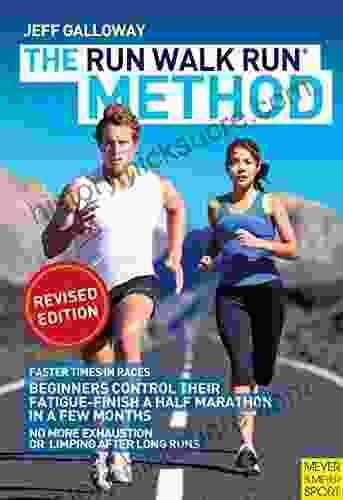
 Howard Blair
Howard BlairThe Run-Walk-Run Method: Your Gateway to Running Success
Unlock Your Inner Runner ...
4.5 out of 5
| Language | : | English |
| File size | : | 1607 KB |
| Text-to-Speech | : | Enabled |
| Enhanced typesetting | : | Enabled |
| Word Wise | : | Enabled |
| Print length | : | 137 pages |
| Lending | : | Enabled |
| Screen Reader | : | Supported |


